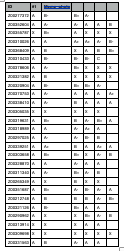Assuming these widely-shared tales are not actually true, what makes them endure? Urban legends are those fanciful tales that grip listeners and are spread widely across continents and oceans while repeated by individuals often claiming the facts reported in the tale happened to a “friend of a friend,” or are based on “facts” reported in news reports that the teller of the tale had allegedly read in the past. A classic example of an enduring urban legend is the enduring tale of the blind, white alligators that inhabit the sewers of New York. In the legends, sun-seeking tourist return from Florida with pet alligators, small babies that quickly became unmanageable and their owners, unwilling to kill them, simply flush them down the toilet. In this environment rich in food (rats), but lacking in sunlight, the alligators became blind albinos, witnessed by the occasional unwary New Yorker of urban legend. they are not necessarily urban nor are they legends in the strict sense of...




